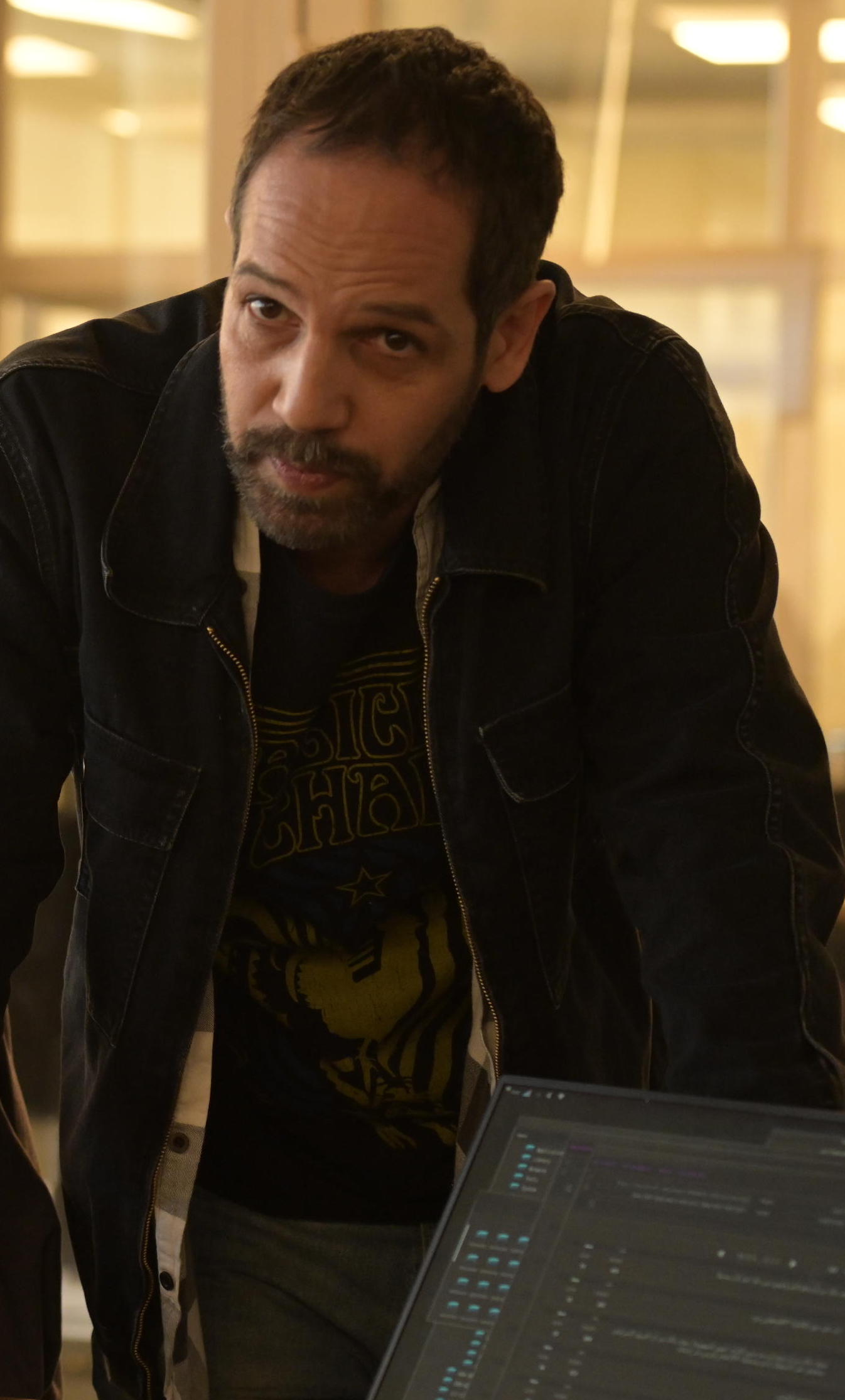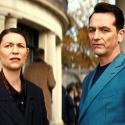A black box with a red blinking light is being stashed in a cabinet under the seating of the Olympic stadium in Munich. Then a hoodie-ed man is seen in silhouette, the stadium in the background. We are about to be plunged into the darker corners of the prosperous Bavarian city where, 50 years earlier, as the footage in the opening credits recalls, the infamous massacre of 11 members of the Israeli Olympic team by PLO gunmen took place.
Different games are in the offing now, notably a special anniversary one between the local football team and one from Tel Aviv. This, various characters proclaim, is no ordinary football match but one freighted with significance, depending on who is talking: a chance for the world to see the co-operation between Israel and Europe; or a way for Israel to sock it to the “Nazis”. Is another massacre in the making? Can it be headed off within the tight time frame we aren’t allowed to ignore, regularly posted on the screen – in episode one, five days before the game?
We proceed shoulder to shoulder with the officers trying to prevent an attack, but they turn out to be caught up in a game too, a tricksy one, as the federal authorities and regional police see nothing wrong in tripping each other up. Few of them, though, are happy at working with Oren Simon (Yousef Sweid, pictured below), an earnest Mossad computer expert drafted in from Berlin with a female sidekick, Noni. Oren has found a message on the dark web that leads him to believe the Tel Aviv team will be attacked. He is clearly an icily focused expert, but his manner, the Germans complain, is arrogant, his methods “Stasi shit”.
 Caught up in these power struggles is the visiting team itself, managed by a jocular, portly man known as Jackie (Dov Glickman, the fine Israeli actor who powered the series Shtisel). But Jackie, we learn within the first minute of his arrival on-screen, has a dangerous secret even his long-suffering wife doesn’t know.
Caught up in these power struggles is the visiting team itself, managed by a jocular, portly man known as Jackie (Dov Glickman, the fine Israeli actor who powered the series Shtisel). But Jackie, we learn within the first minute of his arrival on-screen, has a dangerous secret even his long-suffering wife doesn’t know.
So within the first 10 minutes, in a marvel of scripting economy, we have been shown the field of engagement, all the various players and the logistics of protecting the visiting footballers. But we too are caught up in a game as we watch this superbly crafted thriller: we quickly realise the battle lines aren’t clearcut, and we may not know what we think we know. And while everything that happens seems plausible, it isn't at all predictable.
The Arab woman seen in an opening scene in bed with her curly-haired lover, for example, is actually Maria, a married German police officer of Lebanese origin (Sayneb Saleh); and her Arab lover is an informant she uses to bring her intel from a local refugee camp, set up to house those fleeing the conflict in Syria. Is she just using him? Or has she really fallen in love with him? Is he using her? Is his intel reliable? Is she a reliable partner for Oren?
It takes a steady hand to steer this heavily laden ship, but the cool-headed creators of this series seem to know exactly what they’re doing. The plot is careful to deliver all the ingredients of the genre – car chases, tense crowd scenes that might turn literally explosive, the usual dramatics at computer screens as the dark web is penetrated or a suspect tracked. But there’s an off-kilter human spin even to standard set-ups. Such as the rooftop parlay between a key German intelligence officer, Michael Hahn, and Rafi, the Israeli ambassador, which has to be the only one you'll see that threatens to turn comedic, with Hahn’s teenage daughter jerkily circling the men in her father’s car as she practises for her driving test. Or there’s the scene where Oren’s partner Noni sits next to him chomping deliberately loudly on a bag of crisps while he is trying to make a crucial phone call.
One of the marvels of the scripting is its control of pacing: there’s a steady drip-drip of developments and twists that leaves you permanently engaged. Nothing seems overly programmatic, and generic cliches don’t materialise, especially where characterisation is concerned. Hahn (Sebastian Rudolph) is crisp and businesslike, but also unexpectedly sympathetic, a frustrated man trying to do a good job while aware that his department is underpowered and laughed at by his international counterparts. And as Oren, Yousef Sweid eloquently portrays a brusque man of few words, whose soulful eyes communicate the emotions he is trying to process.
At times scenes look as if they are from a documentary, with a verismo swagger akin to that of Spiral – there’s lots of handheld camerawork, shots from odd angles, but nothing extraneous or self-important. Even the quietly pulsing incidental music keeps its head down; it isn’t needed to create tension and excitement as the twists of the plot achieve that unaided. If you aren’t totally hooked by the end of episode one, you might need to check your vital signs.















Add comment